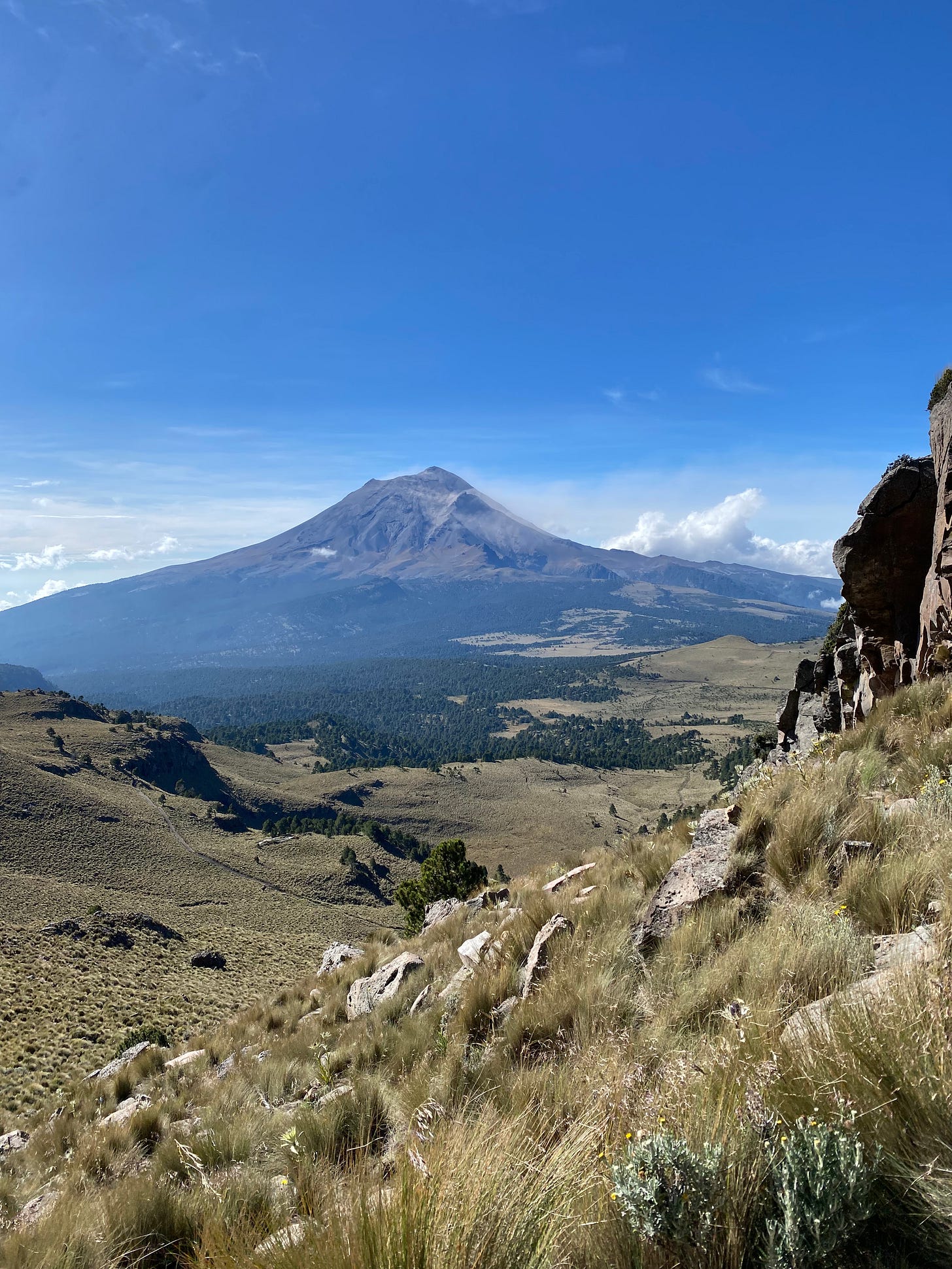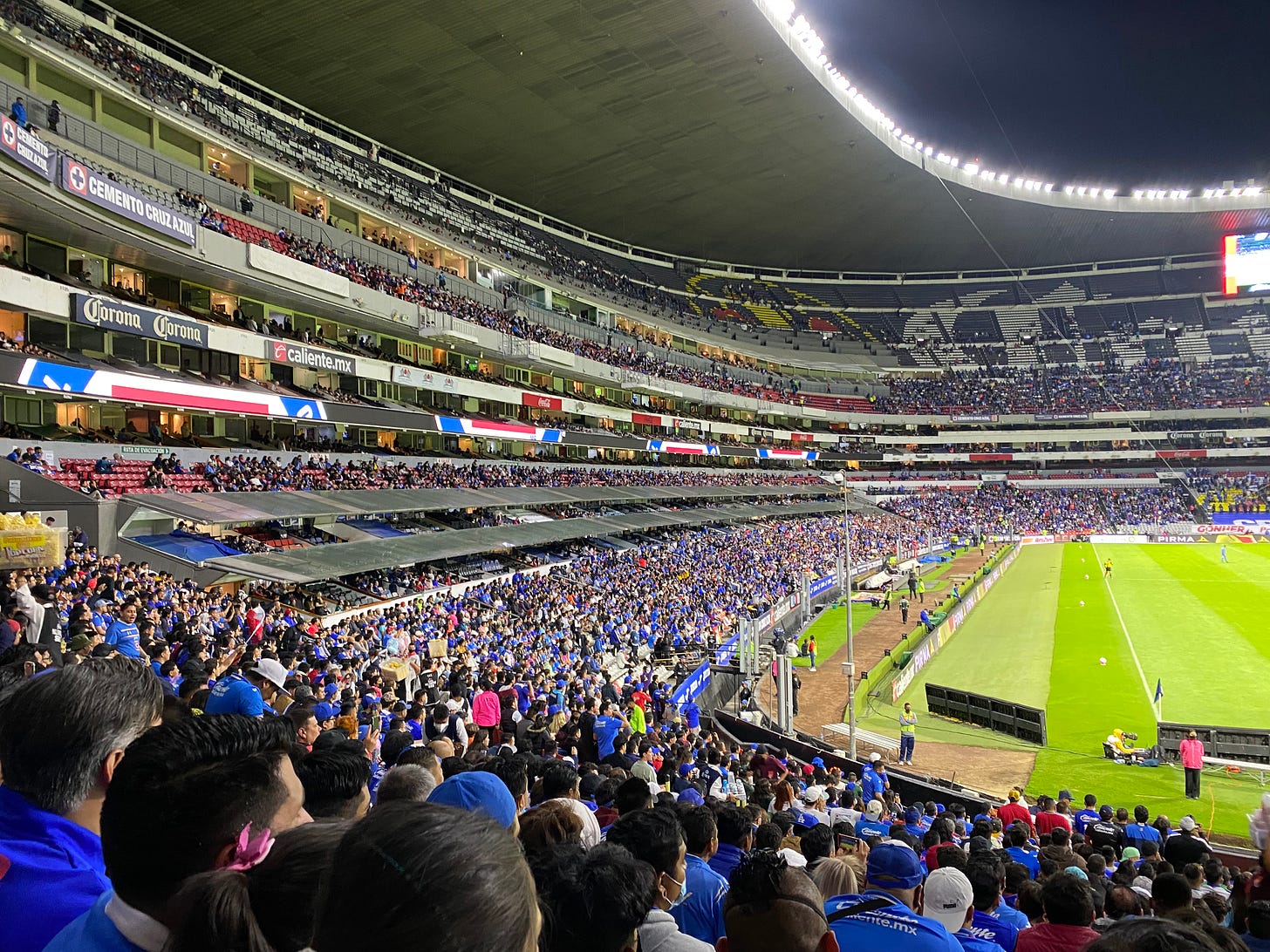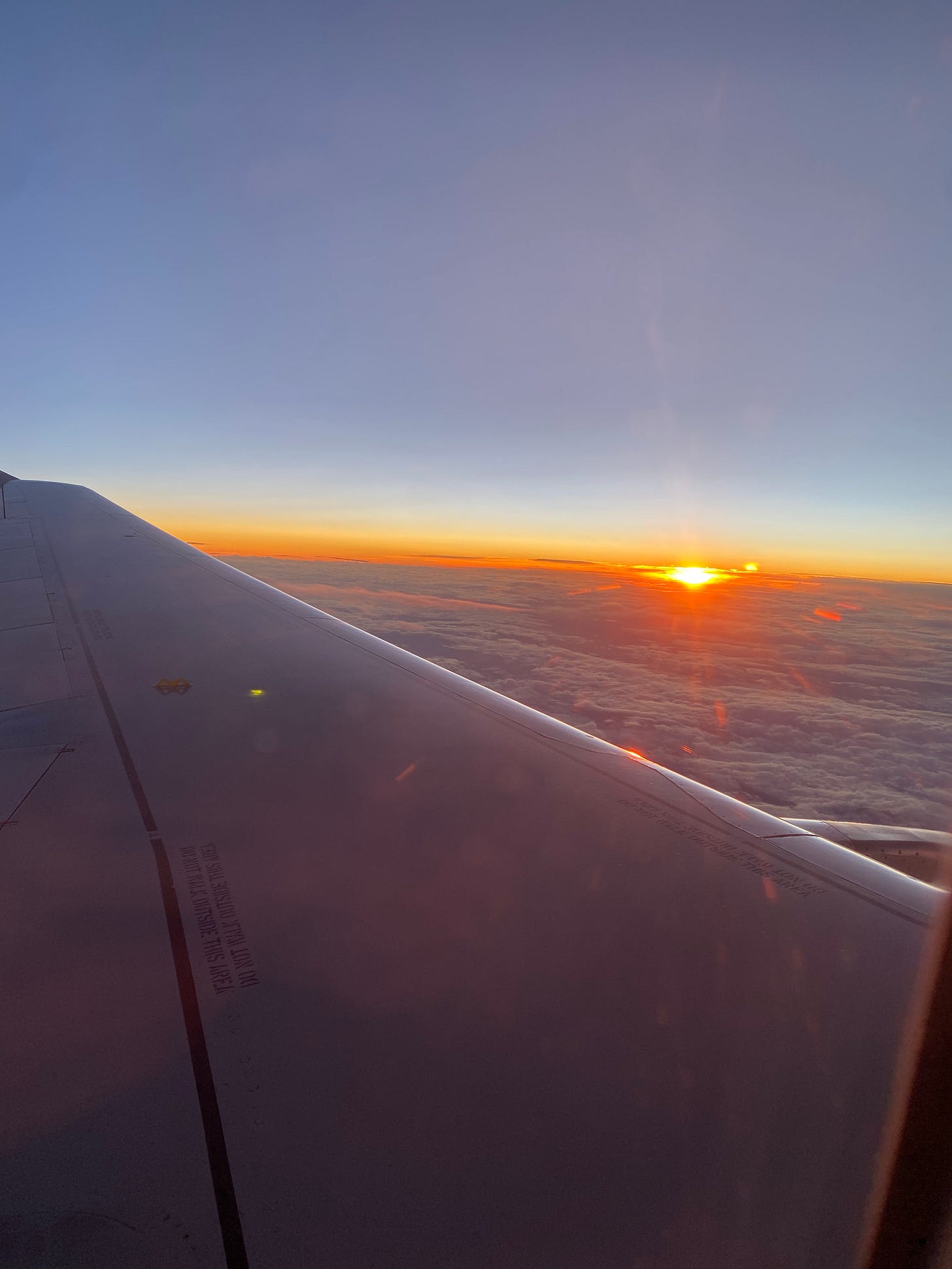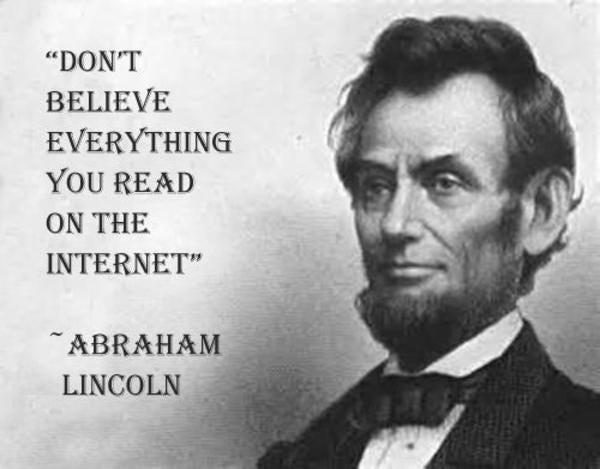#24: Fight Entropy, Build Community
Bluezones; Immigration and the value of experts; My theme for the year
Welcome back inside my little brain.

In an uncertain world: Themes > Intentions > Resolutions
As I age, my self-commitments get fuzzier.
In 2021 I had a strict list of new years’ resolutions: I achieved none of them. In 2022 I had fuzzier New Years’ intentions, with which I fared better: achieving 4 of 9 and making solid progress on 3 others. But I find written commitments constraining, no matter how loosely I commit to them. One of the main things I care about is cultivating an inner sense of freedom and sovereignty—and the imposition of any additional constraint limits both of these.
So this year, instead of resolutions or intentions, I’m picking a theme for the year.
Resolutions make sense in fixed, certain domains with a clear sense of narrative progression—like school—where there are specific paths to achieve finite outcomes (get into college, make varsity soccer team, ask pretty girl to prom).
But the environment I live in (friends and family all over world, work at high growth startup, unclear sense of narrative progression) is open and uncertain. There are many ways to achieve outcomes I want (deep personal freedom, deep sense of community, deep contribution to improving the world), and the paths to those goals are not identifiable in advance—they have to be discovered. In this world, intentions and goals make more sense.
My theme of 2023: Fight Entropy, Build Community.
2022 was the year I realised I was going to die. I spent a week and a half thinking about the meaning(lessness) of life. I’ve written about that elsewhere. My answer to the meaning of life is to fight entropy, and build community.
The enemy of life is entropy. Time degrades all things. Your hair goes grey, your shoes wear out, the roof starts to leak. The eventual end of the universe is a 4.8 Kelvin entropic soup, where everything is the same temperature and it is impossible to do anything whatsoever.
The absence of entropy is a precondition and result of life. Living beings remove entropy. We build roads, fly planes, sweep streets, remove waste, cultivate gardens. Entropy is as inevitable as time itself: but with excess energy to spare, we can beat back entropy, creating local pockets of order for humanity to keep flourishing. Any excess energy we don’t use is wasted. Time’s passage means we can never get our misspent youth back.
My favourite essay of 2022 was The Maintenance Race, by Stewart Brand. Never before have I been more inspired to tidy my kitchen or clean my desk space. In his essay, the successful sailors weren’t the ones with the best technology or the most bravery (though that helps)—they were the ones who kept their boats the cleanest. A ship at sea is a microcosm of a working civilisation. And a clean boat is more easily adaptable in uncertain waters.
I want to put every unit of excess energy I’ve got into fighting entropy—into cleaning my tiny corner of civilisation so it’s easier to live in, and more easily adaptable in uncertain waters.
The way I’m most excited to fight entropy? Building community: using my excess energy to plan events and create spaces where we can deepen our relationships with each other. I’m hoping to host more people over for dinner in 2023. Let me know if you’d like to join.
Bluezones, or, how to live for a really long time
Dovetailing with my fascination with mortality has been an interest in Blue Zones: communities of elderly people who regularly live to over 100. There are 5 Blue Zones in the world: One in Japan, one in Costa Rica, one each in Greece and Italy, and one in southern California.
These communities have several things in common:
Not all are vegetarian, but they all eat a plant heavy diet with local produce.
They all participate in regular, moderate exercise, in most cases every day.
Members of each community keep working well past retirement age, but they don’t stick to a 9-5 schedule.
The communities are typically religious and have a kind of weekly sabbath day where they deliberately do very little.
The communities live up to their name: they have a strong local community with deep bonds between members.
None of the communities smoke.
All of this results in a life with little chronic stress and a long healthspan. In one video I watched, many men in their late 70s were running half marathons!
There are some interesting differences though, too:
Some communities are vegetarian, some regularly eat meat
Some communities don’t drink alcohol, others drink regularly
Some communities don’t consume caffeine, others drink coffee regularly
Some communities stick to a rigorous fasting schedule, others eat a few meals per day
I’ve been thinking about how to preserve my health for as long as possible, and it seems like these are the keys:
regular exercise
meaningful work (doesn’t need to be paid. Gardening can be work. So can writing essays)
actively participating in a community outside of work
time for rest and reflection
not drinking much alcohol
and sticking to Michael Pollan’s aphorism: Eat Food. Not Too Much. Mostly Plants.
In 2023 I’ll be tinkering with various diets and exercise regimes and will report back here if I discover anything interesting.
Immigration, or, how I learned to stop caring and pay lawyers thousands of dollars
Outsourcing things to experts is good, actually.
My Canadian Permanent Residency application, my golden ticket to the North American remote jobs market, which took 12 months and several thousand dollars to prepare, was rejected on January 3rd. My work permit expires on January 17th (tomorrow)—so in order to avoid breaking immigration law, I had 14 days to prepare a new application from scratch.
For my whole life I have prided myself on self-sufficiency. I learned to be self-sufficient as a young 3rd culture kid—constantly moving from country to country makes it difficult to build deep relationships with people, which means you don’t learn how to rely on others outside your nuclear family.
Self-sufficiency is mostly good. Some self-sufficiency is necessary to have self-sovereignty—having to do everything yourself makes you feel like you can learn anything yourself. But actually doing, and keeping track of everything yourself is extremely energy consuming. You quickly become bandwidth constrained if you try to do everything yourself. As I learned the hard way.
To attain the golden ticket of permanent residency you have to pay thousands of dollars, and apply. But before you apply you have to be invited to apply. And before you are invited to apply you have to wait for your name to be called in a points draw. And before you wait for your name to be called you have to pay hundreds of dollars to do English tests, and hundreds of dollars to get your educational credentials assessed, and jump through a variety of other bureaucratic hoops to get enough points to even be in with a chance of having your name drawn. And before the hoop jumping commences you have to pre-apply. And before you pre-apply you have to pay professionals hundreds of dollars to see if your future application will even merit a chance of success…
Figuring out how to navigate the Canadian immigration bureaucracy on my own cost me hundreds of hours, and thousands of dollars—and my application was rejected anyway.
A classic piece of business strategy is to become world-class at the activities you have a competitive advantage in—the things you can do that no one else can do—and outsource everything else. This advice is applicable to individuals too: focus on what you are uniquely disposed to doing, your zone of genius, and outsource everything else.
This year, I learned that interfacing with bureaucracy is not within my zone of genius.
If I had paid for a single consultation with a lawyer a year ago, it would’ve saved me a hundred hours of work. But back then I didn’t think I needed any help, and couldn’t bring myself to ask. I didn’t think a lawyer would tell me anything reddit couldn’t.
Not only was I wrong about that, but even if I had been right, hiring a lawyer would’ve still been worth it.
Doing your own research can lead you to all the same conclusions as the lawyers—after all, all the immigration documentation is in the public domain—but those conclusions will only be provisional. The error bars on your own judgements will be large. The experts know which instructions to take seriously and which to ignore, and hiring one helps reduce uncertainty in your own decisions. And they can help project manage you too, which leaves more mental bandwidth for you to live your life.
I submitted my second permanent residency application on Friday the 13th. Unless I’m unlucky, I should have a PR in only a few months.
Ultimately, time is money and money is time. In the future, here’s the criteria I’m going to use to decide whether to seek expert help:





Awesome article Thomas! The section on fighting entropy and building community really resonated. I left the US about 5 years ago and have been living in Spain ever since. One of the biggest things I noticed is the emphasis on community and getting together with friends and family whenever possible. (it seems like every other weekend there's a holiday or celebration where people are getting together to meet and enjoy life together)